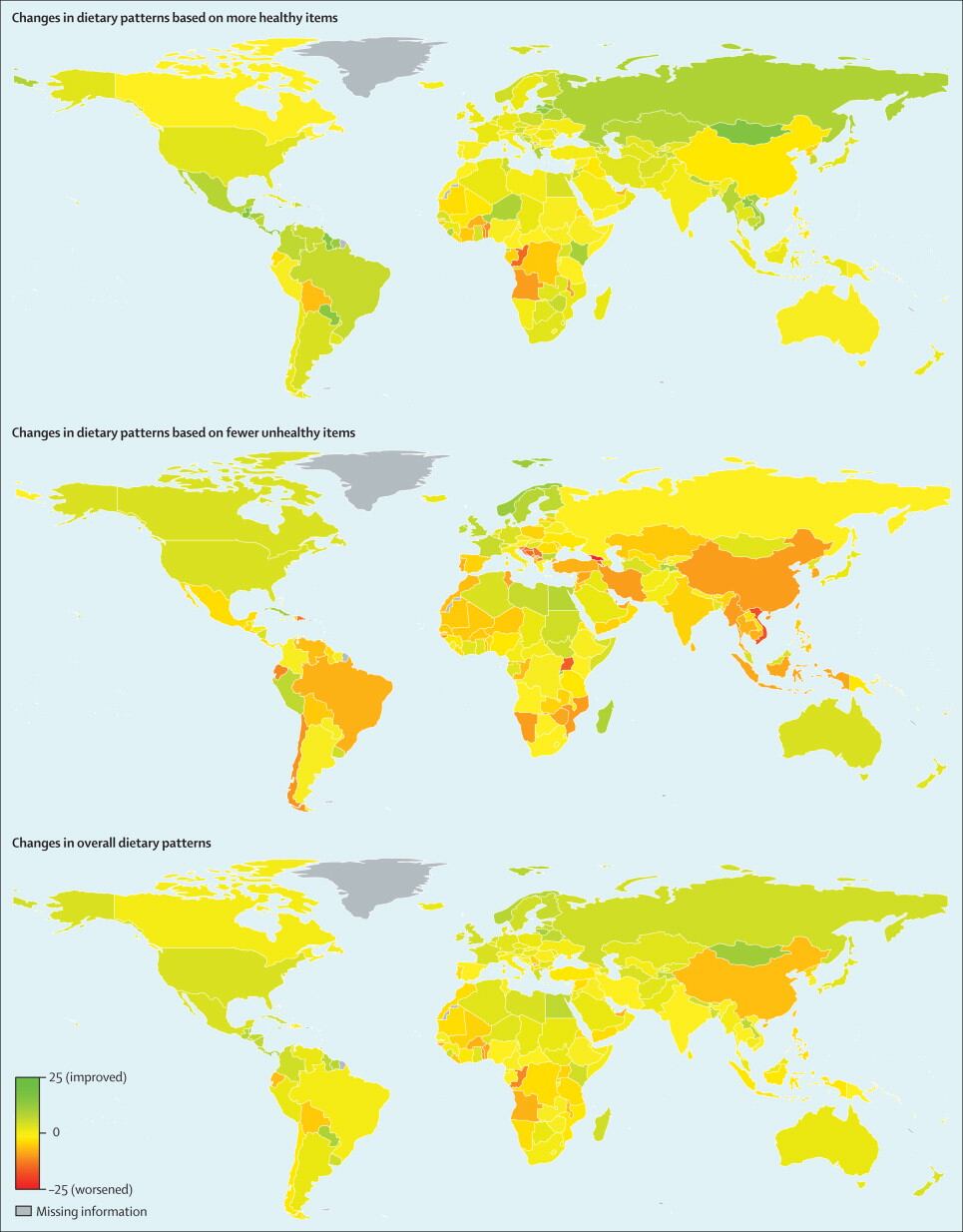The first-of-its-kind analysis of international dietary patterns compared trends in intakes of healthy versus unhealthy foods in 187 countries between 1990 and 2010, finding major differences by country and drawing the conclusion that overall diet quality worsened across the world even as consumption of healthier foods increased in many countries.
Overall, increases in the consumption of unhealthy foods outpaced beneficial dietary changes, especially in middle-income nations, said the research team, writing in The Lancet Global Health.
Led by senior author Dr Dariush Mozaffarian from the Friedman School of Nutrition Science and Policy at Tufts University, the research team said that the findings show that there is no ‘one-size-fits-all’ solution to improving diets internationally.
"While it's encouraging to see some improvement in parts of the world, we still have a long way to go," said Mozaffarian. "With this analysis, we're supplying data that support longtime speculation that, globally, our diets are getting worse.”
“We also show that these changes in dietary patterns vary significantly by country: in some countries, lack of healthy foods is the biggest problem; in others, excess unhealthy foods; and in others, such as the United States, it's both. This tells us there is no one-size-fits-all approach to improving global diets."
Global analysis
The research team, led by scientists at Tufts and the University of Cambridge and backed by The Bill & Melinda Gates Foundation and UK Medical Research Council (MRC), reviewed 325 dietary surveys, representing almost 90% of the world's adult population, focusing on 17 common foods, drinks and nutrients.
The analysis included healthier options such as whole grains, fish, fruits and vegetables, and polyunsaturated fat, and unhealthy options such as sodium, cholesterol, processed meat, and sugar-sweetened beverages.
Overall, the team reported that older adults tended to have better quality diets than younger adults, and women tended to eat healthier than men.

However, the team also found important relationships between country income and diet quality – noting an increase in consumption of healthy foods and nutrients in high and middle-income countries, but little increase in low-income countries.
"At the same time, we saw an even stronger association between national incomes and unhealthy diet patterns," said first author Fumiaki Imamura from the MRC Epidemiology Unit 0 based at the University of Cambridge.
"In other words, people in high income countries, and increasingly middle income countries, are among the biggest consumers of unhealthy foods."
In addition, the authors saw no increase in consumption of healthier food items in the world's poorest regions.
"The lack of improvement in areas like Sub Saharan Africa and the Andean States of Latin America underlines the urgent need to address diet quality in the poorest nations, where rises in obesity, diabetes, and cardiovascular diseases are joining undernutrition and nutrient deficiencies as health problems," said Imamura.
"If we don't step up efforts to improve the current food supply, we could see the same turn toward nutrient-poor, processed foods as we've seen in China, India and other middle income countries where we saw the largest increases in consumption of unhealthy foods."
Mozaffarian said these findings from the study can be used to inform policies and prevention efforts aimed at improving dietary patterns to reduce the healthcare costs and other burdens of poor quality diets.
Source: The Lancet Global Health
Volume 3, Issue 3, March 2015, Pages e132–e142, doi: 10.1016/S2214-109X(14)70381-X
“Dietary quality among men and women in 187 countries in 1990 and 2010: a systematic assessment"
Authors: Fumiaki Imamura, et al
